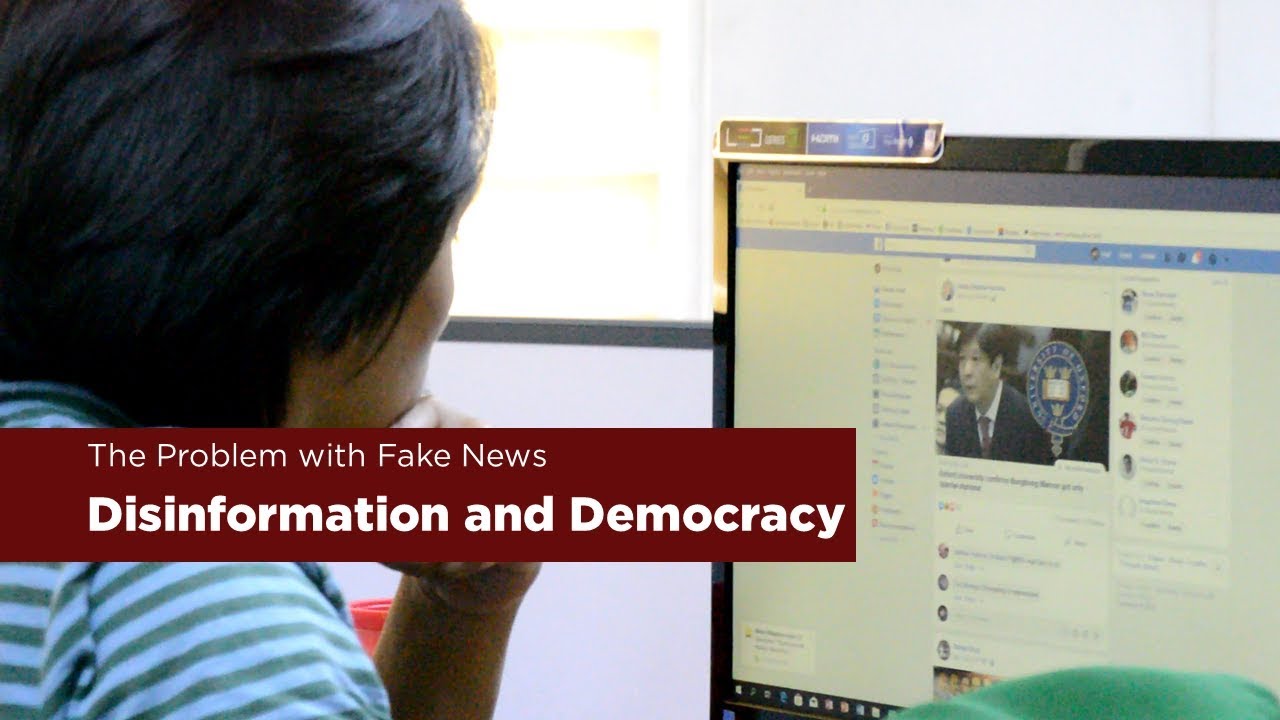The Impact Of Fake News On Society And Democracy - Understanding The Consequences
In the age of digital media and the internet, information has become more accessible than ever before. However, with this increased access comes a heightened risk of exposure to false information, commonly referred to as "fake news."
Mar 09, 202326.9K Shares998.9K Views

In the age of digital media and the internet, information has become more accessible than ever before. However, with this increased access comes a heightened risk of exposure to false information, commonly referred to as "fake news."
The impact of fake news on society and democracyis a topic of growing concern, as it has the potential to shape public opinion, influence political decisions, and create social divisions. The spread of fake news is facilitated by the ease with which it can be shared and circulated on social media platforms, making it a challenge to control and combat.
The Definition Of Fake News
Fake news refers to the deliberate dissemination of false information in order to mislead the public. This can take the form of fabricated stories, manipulated photos or videos, or hoaxes.
Fake news can be spread for a variety of reasons, including financial gain, political propaganda, or simple entertainment. Regardless of the motive, the consequences of fake news can be far-reaching and devastating.
The Impact Of Fake News On Society
The impact of fake news on society is significant, as it has the potential to shape public opinion and beliefs. When false information is widely distributed, it can create confusion and distrust, making it difficult for individuals to distinguish between fact and fiction.
This can result in the spread of dangerous conspiracy theories and misinformation, particularly in regard to critical issues such as public health, the economy, and national security.
Furthermore, fake news can also contribute to the amplification of social and political divisions. When individuals are exposed to information that confirms their preexisting beliefs and biases, they are less likely to question its accuracy. This can lead to the reinforcement of existing cultural and ideological divisions, making it difficult to find common ground and work towards a shared solution.
The Impact Of Fake News On Democracy
The impact of fake news on democracy is perhaps even more profound, as it has the potential to undermine the very foundations of democratic societies. When false information is spread, it can skew public opinion and shape the outcome of elections.
This can result in the election of candidates who do not represent the views and values of the majority of citizens. Moreover, fake news can also erode trust in democratic institutions and processes.
When citizens are unable to distinguish between factual and false information, they may question the credibility of elected officials, the media, and other sources of information. This can lead to a loss of faith in the democratic system and a decrease in civic engagement, ultimately threatening the stability and legitimacy of democratic societies.
Fighting Against Fake News
Combating the spread of fake news is a complex and ongoing challenge, as it requires a multi-faceted approach that involves a range of actors, including individuals, the media, tech companies, and governments. Some of the measures that can be taken to address the impact of fake news on society and democracy include:
Media Literacy
Encouraging individuals to critically evaluate information and question its source is a crucial step in fighting against fake news. Media literacy education can help individuals to identify and reject false information, and make informed decisions based on reliable sources.
Technology
Tech companies have a responsibility to prevent the spread of fake news on their platforms. This can be achieved through a combination of algorithmic filtering, human review, and user reporting mechanisms.
Government Regulation
Governments can play a role in combating fake news by establishing legal frameworks that hold individuals and organizations accountable for the spread of false information. This can include criminal penalties for those who deliberately spread false information with malicious intent.
Fact-checking
The role of fact-checking organizations and journalists is crucial in combating fake news, as they play a key role in separating fact from fiction and providing the public with accurate information. Fact-checkers can help to expose false information and provide context and analysis that helps individuals to better understand complex issues.
The Impact Of Fake News On Society And Democracy And The Responsibility Of Social Media Companies
Social media companies have a crucial role to play in combating fake news, as they are the primary platforms through which false information is spread. These companies have a responsibility to prevent the spread of false information and to ensure that the content on their platforms is accurate and trustworthy.
This can be achieved through a combination of algorithmic filtering, human review, and user reporting mechanisms. However, the responsibility of social media companies to address the spread of fake news is often debated, with some arguing that these companies should have a greater role in policing the content on their platforms, while others argue that this would infringe on freedom of speech.

The Problem with Fake News: Disinformation and Democracy
The Role Of Individuals In Combating Fake News
Individuals also have a responsibility to be vigilant in identifying and rejecting false information. By practicing media literacy and critical thinking, individuals can help to reduce the spread of fake news and ensure that information is accurate and trustworthy.
This includes evaluating the source of information, verifying claims with multiple sources, and being cautious of sensational headlines and stories. The role of individuals in combating fake news is crucial, as they can help to promote a culture of fact-checking and accuracy, and ultimately help to mitigate the impact of fake news on society and democracy.
People Also Ask
What Is Fake News?
Fake news refers to false information or propaganda that is spread intentionally to mislead or manipulate the public. It often takes the form of news articles, videos, or social media posts that appear to be credible, but are deliberately misleading or inaccurate.
What Is The Impact Of Fake News On Society And Democracy?
The impact of fake news on society and democracy can be far-reaching and damaging.
How Can Fake News Be Prevented?
Fake news can be prevented through a combination of media literacy, critical thinking, and responsible journalism.
Conclusion
The impact of fake news on society and democracy cannot be overstated. It has the potential to shape public opinion, influence political decisions, and create social divisions. Fighting against fake news requires a multi-faceted approach that involves individuals, the media, tech companies, and governments working together. It is imperative that we take action to address the spread of fake news, as it poses a threat to the stability and legitimacy of democratic societies.
The impact of fake news on society and democracy must not be taken lightly, as it has the potential to undermine the very foundations of your democracy. The importance of media literacy, technology, government regulation, and fact-checking in combating fake news cannot be overstated. By taking a proactive and collaborative approach, we can work to counter the impact of fake news and ensure the accuracy and integrity of information.
Latest Articles
Popular Articles
